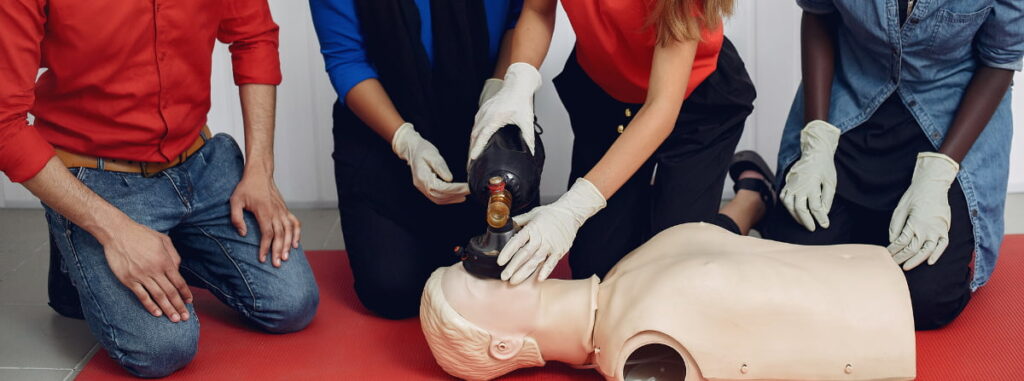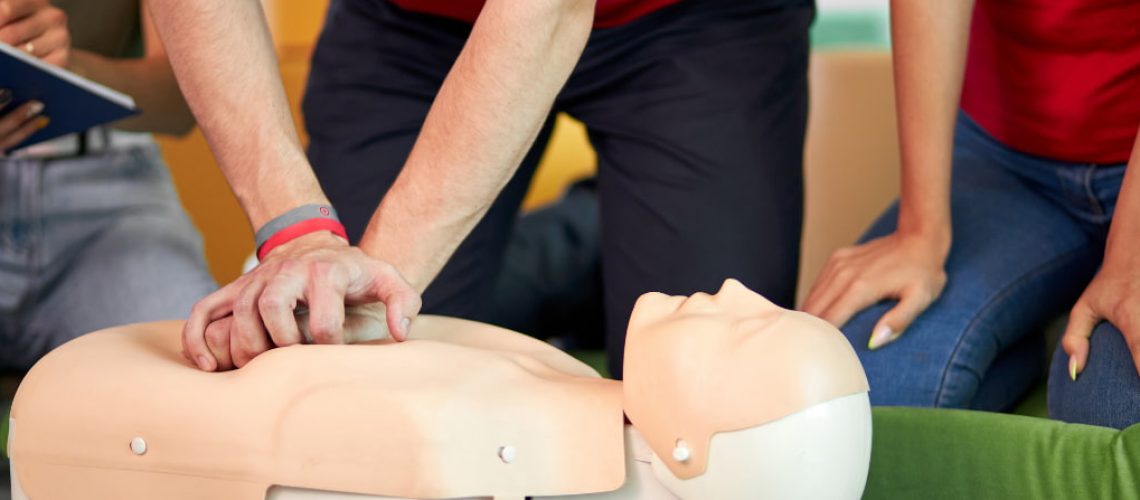It’s time to expand your knowledge in life-saving skills and techniques. With Blueguard’s vast array of options, you may be wondering which courses are best suited for you and what distinguishes Basic Life Support (BLS) from Cardiopulmonary Resuscitation (CPR). Although they are related, BLS and CPR offer unique concepts that set them apart from one another. Allow us to explain the differences for you.
What is Basic Life Support (BLS)?
Basic life support refers to a comprehensive set of medical procedures performed to sustain life in the event of cardiac arrest, heart attack, or other life-threatening medical emergencies. BLS is typically performed by healthcare professionals such as first responders, lifeguards, and nurses, but can be used by anyone who is trained to respond to an emergency.
What is Cardiopulmonary Resuscitation (CPR)?
CPR is the part of BLS that concentrates on providing chest compressions and resuscitation breaths. This technique is applied when a person’s heart has ceased to beat, and they have stopped breathing. The objective of CPR is to revive the normal heart rhythm and restore normal breathing. This ensures that oxygen-rich blood continues to flow to the brain and other vital organs. CPR is a critical part of BLS and is usually the first thing to do in cases of cardiac arrest.
What Are The Similarities Between BLS & CPR?
One of the primary similarities between BLS and CPR is that both certifications cover the basics of emergency medical response. Both BLS and CPR certifications focus on providing individuals with the knowledge and skills necessary to respond to a medical emergency quickly and effectively. This includes learning about emergency signs and symptoms, as well as how to perform basic life-saving procedures such as CPR and using an automated external defibrillator (AED).
Another similarity between BLS and CPR is that both certifications provide individuals with hands-on training in a variety of scenarios. BLS and CPR certifications typically include both theoretical and practical components, allowing individuals to gain a comprehensive understanding of the emergency medical response. This hands-on training is critical, as it helps individuals to feel confident in their ability and to respond effectively when needed.

What Are The Differences Between BLS Certification & CPR?
One of the most important distinctions between BLS and CPR is the level of certification. BLS certification courses are designed to provide individuals with the skills and knowledge they need to provide life-saving care in a medical emergency, while CPR courses are designed to provide individuals with the skills they need to perform chest compressions and rescue breathing in the event of cardiac arrest.
BLS certification courses are typically more rigorous and demanding than CPR courses, and they require individuals to demonstrate a high level of proficiency in a wide range of skills and concepts. Someone interested in BLS may learn the following tasks that are not included in a CPR course:
- Understanding the chain of survival
- Learning the importance of personal safety
- Learning the legal considerations of a first responder
- How to handle first aid emergencies such as bleeding and broken bones
- How to help someone who is choking
- The importance of personal protective equipment (PPE)
- How and when to contact emergency services
Join us at Blueguard to Complete a Learning Course!
Although BLS and CPR courses are interrelated they offer a difference in scope and understanding. The differences between them are important for individuals who are interested in obtaining certification, or who need to learn these life-saving skills for their personal or professional lives.
Whether you are looking for a job in lifeguarding or nursing, or to work in a school, the professionals at Blueguard provide courses for both basic life support and cardiopulmonary resuscitation. In addition to BLS and CPR courses, we have lifeguarding and first aid courses. With something available for every level, we are sure you will find the perfect fit!
To learn more, contact a member of our team today.

Kim Beasley
Lifeguard & First Aid Instructor





